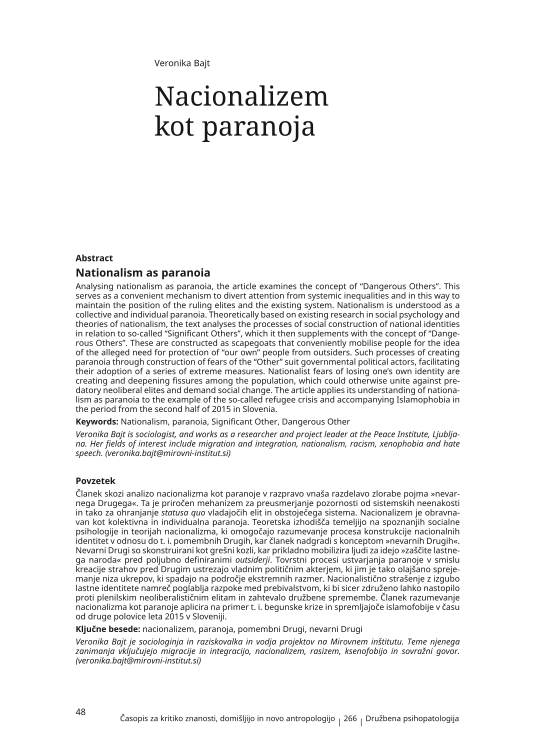Analysing nationalism as paranoia, the article examines the concept of “Dangerous Others”. This serves as a convenient mechanism to divert attention from systemic inequalities and in this way to maintain the position of the ruling elites and the existing system. Nationalism is understood as a collective and individual paranoia. Theoretically based on existing research in social psychology and theories of nationalism, the text analyses the processes of social construction of national identities in relation to so-called “Significant Others”, which it then supplements with the concept of “Dangerous Others”. These are constructed as scapegoats that conveniently mobilise people for the idea of the alleged need for protection of “our own” people from outsiders. Such processes of creating paranoia through construction of fears of the “Other” suit governmental political actors, facilitating their adoption of a series of extreme measures. Nationalist fears of losing one’s own identity are creating and deepening fissures among the population, which could otherwise unite against predatory neoliberal elites and demand social change. The article applies its understanding of nationalism as paranoia to the example of the so-called refugee crisis and accompanying Islamophobia in the period from the second half of 2015 in Slovenia.




